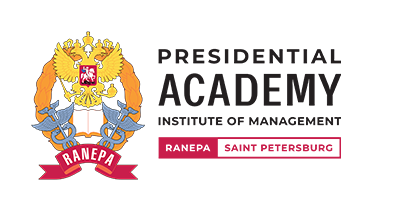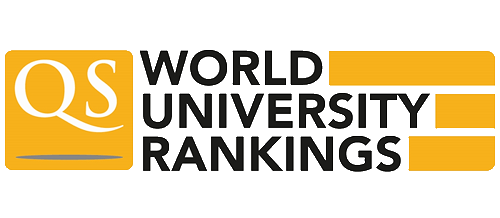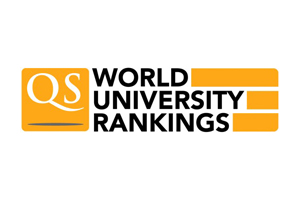The Department of International Cooperation organizes the international activity of RANEPA St.Petersburg, participates in the implementation of educational projects, keeps contacts with foreign partners and consulates of foreign countries, and searches for new partners.
We focus on:
- Development and implementation of international cooperation programs
- Analysis of proposals for bilateral cooperation with international partners and consulting for RANEPA St.Petersburg management
- Informing academic staff, students and postgraduates on possibilities of international grants and participation in international educational and/or exchange programs, as well as planning and further support of their participation
- Contacts with international organizations and funds with the aim of fundraising for cooperation programs with international partners as well as for courseware improvement
- Organization of international visits (partners, rectors and administrative staff of universities, visiting professors, exchange students, official delegations, representatives of international organizations, etc).
The Department consists of:
- Organizational Support Section — international protocol events, monitoring and statistical reporting on international activities, official business correspondence
- International Admissions Office — visa support for international students and academic staff, other incoming requests, migration registration services
- Center for Export and International Educational Programs — Russian language courses and marketing
- International Projects Center — international research projects, funded by international organizations, preparation of grant applications, international grant management and related activities
- Asia Pacific Center
- Center for Eurasian Cooperation
Head of Department – Konstantin Korolev
Tel.: +7 (812) 335-94-94, ext. 7113
Deputy Head – Irina Rodina
Tel.: +7 (812) 335-94-94, ext. 7125
Tel.: +7 (812) 335-94-94, ext. 7002
4 Pesochnaya Embankment, offices 402, 403, 404, 405, 406, St. Petersburg
> Excerpt from RANEPA St. Petersburg Development Strategy up to 2030
From 2012 to 2020, the RANEPA St. Petersburg has created the necessary foundation for further internationalization of educational and research areas.
Cooperation agreements have been concluded with leading European universities that are in the top-100 of the global and top-60 of the QS subject ranking in social sciences, including the implementation of academic and scientific mobility programs, joint global projects and large-scale events.
Work is underway to attract foreign teachers and implement international academic and research projects. Educational programs are being transformed in accordance with international quality standards. The scientific publications of the Institute are being reorganized to meet the high international standards that ensure indexing in the Scopus and Web of Science Core Collection (Scopus/WoS) databases.
The Institute’s policy in the field of international activity and internationalization will be aimed at solving the following tasks:
- The establishment of the Institute as an international educational and scientific center, competitive in the European and global academic and research market. Transformation of the Institute into a competence center both from the point of view of educational programs in the field of public administration and public policy, and from the point of view of scientific and applied analysis of public administration practices, socio-economic development and territorial planning;
- Creation of an educational and research infrastructure at the Institute, which will allow students, teachers and researchers to get quick access to global academic resources, and for foreign students, teachers and researchers — to accelerate and make more effective integration into the educational and research process of the Institute;
- The development of a single office for working with foreign students, teachers and researchers at the Institute, which will provide them with quick access to the necessary reference information, will allow them to receive accounts and profiles in the electronic systems of the Institute and will provide support in interaction with state authorities, including assistance in solving visa and migration issues;
- Transformation of the Institute’s information policy and creation of a bilingual information environment. The formation of all electronic services of the Institute bilingual. Development of the English-language version of the official website of the NWIM. Creating comfortable public spaces and coworking areas for students and teachers to work together, where ideas, practices and initiatives can be freely exchanged, to create an atmosphere of interaction and cooperation;
- The transformation of the language training system is carried out in such a way that by the 3rd-4th year of the bachelor’s degree, students will be able to effectively carry out scientific communication in English, easily master educational programs at foreign universities within the framework of academic mobility and quickly integrate into international research projects. The language support of teachers and researchers provides opportunities to improve the quality of translation of the texts of articles and monographs sent for publication to international journals and academic publishers. The system of training and retraining of teachers and researchers in the field of academic writing and scientific communication in foreign languages is also being developed;
- Development of infrastructure for conducting scientific research. Expanding the Institute’s subscription to leading international journals and databases in priority areas of its development. The extensive possibilities of the library and the electronic educational environment of the Institute will encourage foreign students, teachers and researchers to choose the Institute as a place of study, teaching or work, which will provide a wide range of opportunities and access to the results of advanced Russian and world research.
- Creation of conditions for the formation of permanent research teams at the Institute, capable of providing consulting services for state and municipal authorities of the CIS, EU, OECD, APEC, BRICS, SCO, EEU countries;
- The establishment of the Institute as a recognized international discussion platform, where scientific, educational and expert events are held with the participation of international scientists and experts, problems of public administration and public policy, territorial development are discussed;
- A significant increase in the degree of internationalization of the educational component of the Institute due to transformation in two directions: expanding the Institute’s network of contacts with the world’s leading universities from the top 500 of the QS rating to improve the opportunities for outgoing academic mobility, expanding its participation in pan-European mobility programs. Creating a system of financial support for the best students to ensure equal opportunities for outgoing academic mobility;
- Increasing the number of bilingual educational programs and modules at the Institute within the framework of individual programs to expand the range of educational products available to foreign students;
- The establishment of the Institute as a center for immersion of foreign students in the Russian-speaking language environment, with the opportunity to deepen their knowledge of the Russian language or start learning it from scratch, while studying in English;
- Creation by the Institute of fully English-language bachelor’s and master’s programs, as well as programs of additional professional education in all educational areas using the results of advanced world research and focused on the study of Russia and the post-Soviet space;
- Creation of a line of international summer schools that allow foreign students, teachers and researchers to carry out short-term mobility programs, to create prerequisites for more effective integration of the Institute into the international academic environment and to ensure the entry and permanent presence of the Institute in the global academic market;
- Development of two-degree programs at the Institute with the participation of leading universities from the top 500 of the QS global ranking.



